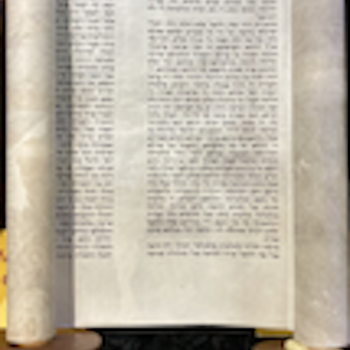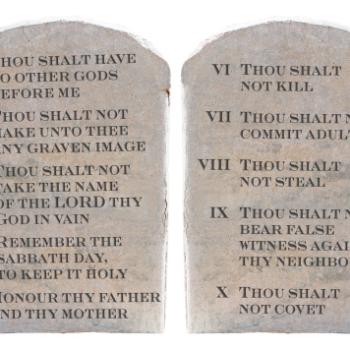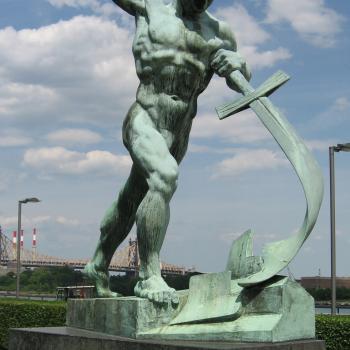The Middle East is a mess. And it seems everywhere you turn, it’s getting messier. Just consider these sobering facts of late:
- Syria’s three-year old civil war is spilling out into Iraq due largely to ISIS/ISIL that are a part of the rebellion.
- Sunni insurgents in Syria’s war are being financed by Sunni governments in the Persian Gulf, including Saudi Arabia.
- The Syrian rebellion is losing against Syrian President Bashar al-Assad’s military forces.
- ISIS’s goal is to create a Muslim caliphate in Easter Syria and Western Iraq, and they are on their way to doing it.
- The U.S. has failed in its military efforts to stave off the Muslim Taliban in Afghanistan, so we are pulling out.
- These Middle East wars increasingly are becoming sectarian conflicts between the major sects of Islam: Sunni and Shiite.
- This week’s Time magazine front cover map of Iraq says “The End of Iraq,” and I think it’s right.
- After the U.S. pulled out of its Iraq War, now we’re going back to prop Iraq in defending against ISIS’s invasion.
- U.S. President George W. Bush’s foreign policy was focused mostly on promoting democracy in the Middle East.
- Egypt had its first democratic election, Muslim Brotherhood’s Mohamed Morsi won, Egypt’s military threw him out one year later, last week the Egyptian courts condemned 180 of his followers to death, and the seeming military coup of now President el-Sissi, former defense minister, is looking like the former dictatorship of Hosni Mubarak.
- Radical, militant Muslims are gaining ground in the Middle East. Yet Egypt’s Hosni Mubarak and Iraqi President Saddam Hussein had always said that without their dictatorships their nations’ would fight civil war between Shiites and Sunnis. It looks like they were right. And despite how evil Saddam Hussein was, both he and Mubarak preserved religious freedom.
- The U.S. now puts the Israeli-Palestinian conflict on the back burner again. Secretary of State John Kerry made a heroic effort to solve this 60-year old problem and failed miserably as most have before him. When Israel relinquished the Gaza Strip to the Palestinians in 2005, and elections were held during Bush’s U.S. presidential tenure, the radical Hamas party won. The U.S. had Hamas, and still does, on its terrorist list. So, it could/would not negotiate with them. Kerry’s effort was really futile since all Palestinians must be represented for any peace agreement between Israel and Palestinians to succeed.
Queda flew those jets into the NYC’s Twin Towers, on 9/11, as soon as I learned it was the work of Osama bin Laden I also found out that a book had been written about him. I immediately phoned almost every bookstore in the Phoenix Valley, where I live, until I found a copy of this book and quickly went there, bought it, and then read it without hardly putting it down. Even bin Laden hadn’t figured that those Twin Towers would collapse due to the heat from the airplanes’ burning fuel. Yet, the handwriting had been on the wall, and the U.S. had ignored it. Bin Laden had issued two fatwahs against the U.S. and attacked our ship the USS Cole. But why was he so mad at the U.S.?
Osama bin Laden said he had two things against the U.S.: (1) the infidel, crusader, U.S. nation should not have military troops in the holy land of Islam–Saudi Arabia, and (2) the U.S. is the #1 ally of Israel and peace broker for the Israeli-Palestinian conflict, which is conflict-in-interest. He was calling for the U.S. to be fair to Palestinians.
Bin Laden’s main mentor was a Palestinian who hated the U.S. because of us being the #1 ally of Israel, giving them $3 billion per year for decades, mostly to strengthen their military, and our involvement in the peace process between Israel and Palestinians as the chief broker. Of course, being Israel’s #1 ally produced a conflict-of-interest for us as that sole peace broker. But we were pretty much the lone superpower, and therefore there was no other nation to do it.
When Israel’s neighboring states attacked Israel in the Six-Day War in October, 1967, and Israel decisively won that war, it greatly embittered those Arab states. Then when Israel less decisively won the next war with them, in 1973, those Arab states convinced the Organization of Petroleum Exporting Countries (OPEC), most of which were Middle Eastern nations, to foist an oil embargo against all nations that trade with Israel. Immediately, it unexpectedly caused the price of a barrel of oil to increase four times its previous price in only a few weeks. The U.S. was hit particularly hard financially and psychologically. We had long lines at the gas pump, waiting to fill our car tanks with gasoline.
It was a wake-up call for us Americans to get energy-independent. We were exporting about half of all the oil we use from foreign countries, much of it from Saudi Arabia and other Middle Eastern nations. But we didn’t wake up! I was alarmed and surprised. I thought our citizens did not understand the implications of what was happening. For us to become energy independent, it was going to require some serious belt-tightening. But we needed to do it. I thought, and still do, that the main thing we should do is substantially raise taxes on gasoline. But our people would not have it at all. They wouldn’t pay one more nickel of tax on what makes their cars go. Thus, it was political suicide for any politician to advocate some program that would seriously help us wean ourselves off of foreign oil. It was my first glimpse into the weakness of democracy even though I have always believed that it is the best form of government this side of glory (=Kingdom Come, Jesus’ kingdom that is).
U.S. President Jimmy Carter then came along and tried to get us Americans to smarten up about energy, and to no avail. We wouldn’t listen to him. The result was that we became even more dependent on foreign oil, importing about 57% of the oil we use.
In 1979, Iran overthrew it’s president and became a Shiite Muslim theocracy. Saudi Arabia and most other Persian Gulf nations have heavily Sunni Muslim populations and governments. I had known for a long time that Shiites and Sunnis hate each other. Iran is a much more populous nation than most in the Middle East. Egypt was and is the largest (now about 85 million), and Iran was and is second largest (now about 85 million). Thus, Iran soon started militarily threatening Saudi Arabia (now 28 million population). All Muslims regard Saudi Arabia as the holy land of Islam and its place of origin. Iran was accusing Saudi Arabia of being governed by religious apostates. Of course, Iran was far superior to Saudi Arabia militarily. So, ever since, the U.S. has been arming Saudi Arabia. And the U.S. has had military bases and thousands of troops in Saudi Arabia, although it has been reduced.
And regarding bin Laden’s objection to the U.S. as Israel’s #1 ally and peace broker, I strongly favor continuing both, but I think as peace broker the U.S. has always favored Israel and therefore been unfair to the Palestinians. A lot of it is that one third of the world’s Jewish population are U.S. citizens, many U.S. Jews are very influential politically, AIPAC (Jewish lobby group) is very powerful with the U.S. Congress, few Palestinians are U.S. citizens, and U.S. Evangelicalism largely adopts a pro-Israel and anti-Palestinian position.
If anyone says I’m anti-Semitic about this, I say, “No way, Jose!” I believe I speak on this issue from the standpoint of the Hebrew prophets. I speak out for justice for both Jews and Palestinians. Jews got their own state a long time ago, and Palestinians are still wanting. A two-state solution is the only way this conflict will ever be solved. Read my 1990 book: Palestine Is Coming.
So, I never did disagree with Osama bin Laden’s two objections against the U.S., and I still don’t. At least we are weaning ourselves off of foreign oil, but it’s mostly because of the technological advance known as “fracking,” which is controversial.
Then after 9/11, U.S. President George W. Bush announced that he was considering a second war against Iraq, thus invading the country, which his father did not do in that Persian Gulf War against Iraq. When I heard that I said, “What, that country is made of two sects of Muslims–Shiites and Sunnis who hate each other.” Bush thought freeing the Iraqis would immediately bring democracy. Look at it now. Iraqi Prime Minister Nouri al-Maliki has been strongly Shiite and not advocated a representative government. That’s why the Sunni radical ISIS/ISIL group is making headway there. The result could be another sectarian civil war, in Iraq as in Syria.
I think it’s in the Bible, that what started in early 2011 as Arab Spring and continues as turmoil in the Middle East, is in Bible prophecy. It’s in the book of Daniel, its chapter two. King Nebuchadnezzar, King of the Neo-Babylonian Empire in the sixth century, had a dream about a statue of a man. It frightened the king, but he forgot the dream. The Hebrew slave Daniel told the king the dream and interpreted it for him. Daniel’s interpretation was that the head of the image represented the king’s Neo-Babylonian Empire, and the other main body parts of the man represented successive empires which would arise in the Mediterranean world in the future. I believe that we now live during the time depicted in that dream as the beginning of the feet of the image of the man, that is, his heels. Arab Spring is therefore the beginning of one of the heels of the feet. One of the feet of the image represents Europe, and the other foot of the image represents the Middle East and North Africa. This is in my book, Warrior from Heaven, which was published in 2009, two years before Arab Spring began.
See more about this subject in my post on January 28, 2014, entitled “Tunisia Leads Arab Spring in Fulfilling Bible Prophecy.”












